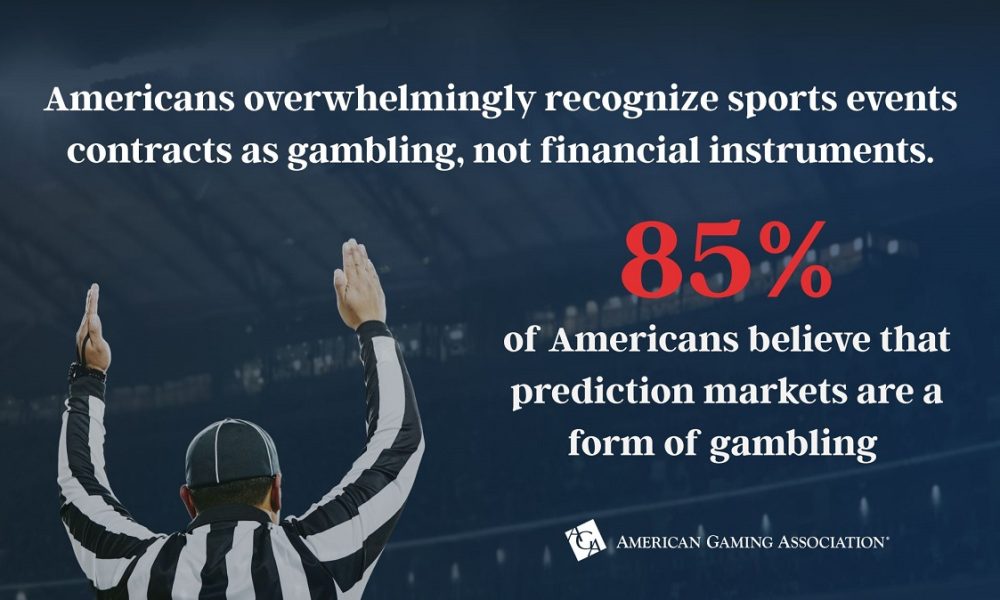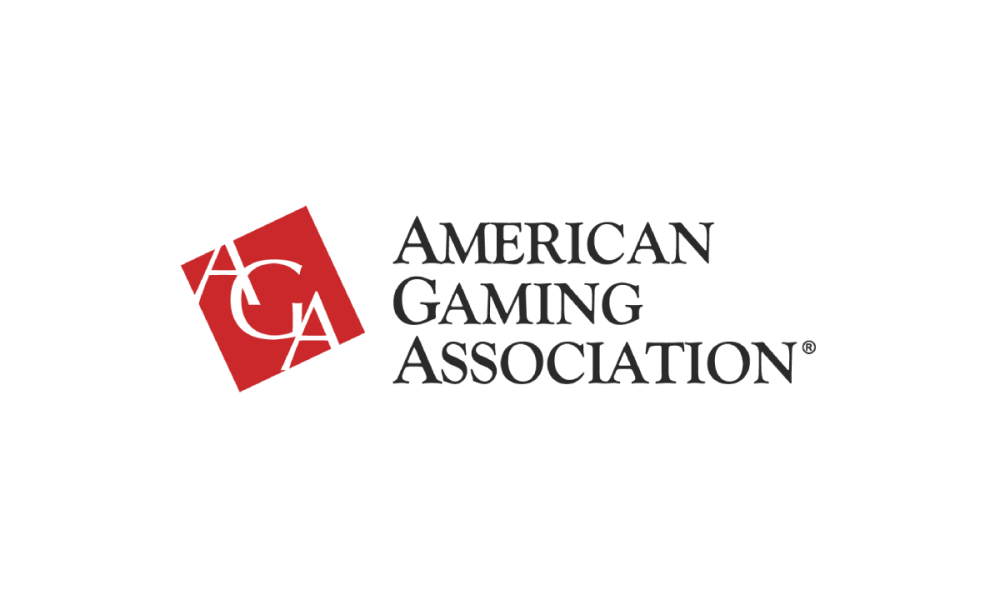

AGA
American Favorability Toward Gaming Grows as Industry Expands
Americans’ positive view of the gaming industry continues to grow as the U.S. legal market expands. New research from the American Gaming Association (AGA) shows that two-thirds of adults view the industry as a positive economic contributor that provides high-quality jobs and 73 percent support legalized sports betting in their state.
Americans also see gaming as a good community partner. Nearly 7 in 10 Americans believe the gaming industry behaves responsibly and a majority (57%) believe the industry gives back in the communities where it operates.
“We are a committed, responsible partner and economic driver in communities across the country,” said AGA President and CEO Bill Miller. “Because of this, we’ve risen from the most devastating period in our history and embarked on a record-setting comeback.”
Americans are taking notice of the industry’s responsible gaming efforts. The number of Americans who say the industry is committed to responsible gaming has increased by nearly 40 percent since 2018. Further, nearly 80 percent of past-year gamblers are aware of industry-provided responsible gaming resources. Of this group, three-quarters point to specific measures like deposit limits, casino employee training, and time limits as most effective.
These findings come at the start of Responsible Gaming Education Week (RGEW), Sept. 19-25, which brings together all industry stakeholders to promote responsible gaming education while also showcasing the industry’s everyday commitment to responsible gaming.
“Responsible Gaming Education Week provides an opportunity to highlight the tremendous work our members and industry do every day to invest in responsible gaming education,” continued Miller. “As legal gaming expands to new geographies and verticals, everyone engaged with legal gaming must work together to grow responsibly—our collective success depends on it.”
RGEW 2021 features AGA’s Have A Game Plan.® Bet Responsibly.
The AGA, with its members, is building a responsible foundation for legal sports betting. AGA’s Responsible Marketing Code for Sports Wagering, launched a year ago, defines a robust set of principles to protect consumers and sets a high standard for advertising with self-imposed restrictions on target audiences, outlets, and materials branding, while mandating responsible gaming inclusion across marketing activity.
Ensuring consumers have effective, accessible resources if they need help is key to sustainable growth. The AGA recently released policy recommendations for streamlining helpline requirements in national or multistate advertising campaigns, which have since been adopted in Indiana.
Casino gaming is legal in 44 states with the addition of four states in the last five years. Sports betting is legal in 32 states and the District of Columbia while six states offer legal iGaming.
Through July, the commercial gaming industry has generated $4.83 billion in 2021, putting the industry on pace to break its annual revenue record set in 2019. The AGA’s Commercial Gaming Revenue Tracker is tracking gaming’s record-setting recovery.
Methodology
Survey results come from two online polls conducted on behalf of the American Gaming Association in the late summer among national samples of 2,000 Americans. The data were weighted to approximate a target sample of adults based on age, educational attainment, gender, race, and region. Results from the two full surveys have a margin of error of +/-2%.
- Kantar fielded its survey between August 13-September 1, 2021 among a national sample of 2,000 American voters aged 21 and older.
- YouGov conducted its survey between June 26-31, 2021 among a national sample of 2,033 American aged 21 and older.
AGA
Four in Five U.S. Voters Say Sports Events Contracts Should Be Regulated Like Other Online Sportsbooks

The American Gaming Association (AGA) released new research showing strong sentiment that sports events contracts offered through prediction markets—online platforms where users wager on the outcomes of future events—should be regulated in the same way as other forms of legal, state-regulated sports betting. The study also shows that the public overwhelmingly view them as a form of gambling that requires oversight.
Key Findings:
- Americans overwhelmingly recognize sports events contracts as gambling, not financial instruments. 85% say sports events contracts are most like gambling, while only 6% believe they are most like a financial instrument.
- Most Americans want sports events contracts regulated like other forms of sports betting. 80% say that sports event contracts should be regulated like other online sports betting and 65% believe these bets should be overseen by state and tribal gaming regulators, not the federal Commodities Futures Trading Commission (CFTC).
- Adults agree that sports events contracts should only be offered by state-licensed sportsbooks. 84% of Americans, and 69% of sports bettors, say that sports events contracts should only be available in state-licensed sportsbooks in the states where they are offered. 69% of Americans believe each state should have a say on whether sports events contracts can be offered in their state.
- Americans recognize prediction platforms offering sports event contracts are skirting the law. 70% say prediction platforms offering sports event contracts are exploiting loopholes to act as unlicensed sportsbooks.
“This research has made it clear: Americans know a sports bet when they see one—and they expect prediction markets offering sports event contracts to be held to the same rules and consumer safeguards as every other state-regulated sportsbook,” said AGA President and CEO Bill Miller. “This underscores the need for the CFTC to enforce and uphold its own regulations that prohibit gaming contracts, and for Congress to use its oversight power to ensure prediction markets are not used as a backdoor for gaming.”
With sports betting currently operational in 38 states and Washington, D.C., AGA’s research emphasizes the need for consistent oversight of emerging gaming products to maintain consumer trust and uphold responsible gaming standards.
Methodology
YouGov, on behalf of the AGA, conducted an online survey from August 1-8, among a nationally representative sample of 2,025 registered voters. The margin of error is +/- 2 percent and greater among subgroups.
The post Four in Five U.S. Voters Say Sports Events Contracts Should Be Regulated Like Other Online Sportsbooks appeared first on Gaming and Gambling Industry in the Americas.
Affiliate Industry
What a Mature Market Means for US Affiliates

When the US Supreme Court struck down the Professional and Amateur Sports Protection Act of 1992 (PASPA) in 2018, it opened the floodgates to sports betting in the US. From the middle of 2018 to now, states with some form of legal sports betting went from the four states ‘grandfathered’ by PASPA to 39 states and Washington, D.C. allowing betting. That’s 36 jurisdictions legalizing in eight years.
Soon after the annulment of PAAPA, market activity exploded with several states legalizing and launching every year thereafter. Each state had millions of new customers that operators wanted to reach quickly, and unique regulatory constraints around marketing and betting. That’s where affiliate marketing stepped in, providing local expertise to help these operators rapidly establish a foothold with customers.
That gold rush has now ended. While states with significant populations like Texas and California remain without legal sports betting, the majority of players in the US have access to it. Several states won’t be legalizing sports betting every year like in the past.
If operators no longer rely on affiliates to help them conquer several new markets every year, what roles do these large, third-party marketing companies have to play moving forward? As the market matures, we’re seeing that affiliate marketing has a crucial role to play in the current marketing climate.
What the Mature Market Looks Like
Aside from the lurking possibility of states with huge populations like California and Texas legalizing sports betting, the market is broadly set. Many states that haven’t introduced betting are unlikely to change that position due to the political climate, like in Utah and Alaska.
Sports betting has never been more popular, with total GGR for sports betting hitting $13.71 billion in 2024, according to the American Gaming Association. That was a 25.4% increase year-on-year. However, sports betting has also never been more competitive. Most US states have intense competition between operators competing in saturated ecosystems.
There’s evidence this is impacting affiliate companies, with Catena Media generating 35% less from US operations in 2024 compared to 2023. Another significant operator in US affiliate marketing, Better Collective, saw US revenues drop from $113 million in FY2023 to $112 million in FY2024.
However, this doesn’t spell the end of affiliate marketing. Without the potential to expand into new states, operators are looking to strengthen and grow market share in the states where sportsbooks are already operational and companies have already conducted marketing campaigns with affiliates.
Companies that have quickly grasped this new approach have shown positive signs. Gambling.com Group reported record Q4 revenues in 2024 and finished with full-year revenue of $127.1 million, a 17% rise from the year prior.
It’s made affiliates effectively take a u-turn to recover all the ground they covered so rapidly with the expansion of the market. For example, the first online sportsbooks launched in Michigan in January 2021, so there was a flurry of marketing activity in the state before that attention moved to other states that launched in the same year, like Arizona in September. Now, affiliates are returning to states like Michigan with new approaches.
Trust and Authority and Blitz Tactics
What do these new marketing approaches entail? Rather than acquiring as many users as possible in a short time, affiliates are now focused on increasing brand loyalty. Affiliates want to increase customer lifetime value (CLV), and are more aware of this metric than the base number of how many new users are added.
That’s led to more personalized advertising campaigns with features like exclusive offers, user engagement tools, and more to keep the focus on retaining players rather than adding more and more customers. Brands are looking to build authority and trust with customers.
Adding a few customers with high CLV is priceless for operators compared to hundreds of customers who will drop off quickly. Affiliate marketing supports these platforms with tailored campaigns using specific state knowledge and personalized customer retention measures.
More Sophisticated Customers
When sports betting first started spreading across the US, most people probably confused parlay bets with the French word parley used in popular movie franchises like Pirates of the Caribbean. That was the average American bettor’s education level on the topic.
So, early affiliate marketing efforts focused on introducing common sports betting terminology to customers while explaining the benefits of sports betting brands. Guides would explain how to sign up with a sportsbook and the difference between a moneyline and a point spread. That easy access to sports betting information made it more straightforward for a broader audience to get involved.
It’s a different market eight years on. Most bettors are far more educated than before and don’t need to be babyfed the basics. If an operator wants to appeal to bettors, it must do more than just offer betting.
That’s why affiliate marketing has shifted to a more detailed and data-driven approach. Rather than explaining how American odds work, affiliate marketing campaigns now compare the value of odds between operators and highlight the best value.
Unique betting features are more important to marketing campaigns as these can help attract bettors with accounts at other sportsbooks to sign up with a new platform.
This is where affiliate marketing can help operators in mature markets, as these campaigns can highlight those strengths against other brands and make each platform’s unique proposition clear to savvy bettors.
Broadening Audience Demographics
Considering odds regularly appear on major league broadcasts and are discussed by commentary staff for games, it’s clear that betting is becoming increasingly mainstream. As sportsbooks look to consolidate and compete in competitive markets, reaching new demographics is a valuable marketing tool.
While bettors in the US are more educated now, operators are looking to attract more than just players willing to learn all the jargon. New marketing strategies must make betting relatable and appealing to various ages and demographics.
The campaign to capture the attention of bettors in their 20s should look very different from one for older players, and the best affiliate marketers are helping operators tailor these campaigns to hit specific demographics.
Affiliates’ Role as Strategic Partners to Operators
The relationship between affiliates and operators has shifted as the operators need affiliate marketing companies to deliver different marketing services. Many operators see affiliates as strategic partners rather than just sources of traffic.
These new data-driven dynamics will let affiliates play a wider role in operators’ marketing schemes, providing data integration like live stats, API odds feeds, and more. Additionally, affiliates use years of knowledge and expertise to help these platforms run campaigns through different media sources, including mobile.
Affiliates also play a helpful role in compliance and responsible gambling. Each state has its own requirements, and while no new markets are opening, states that already permit betting can shift rules around what’s available. Scrutiny from regulators is also increasing. Therefore, affiliate marketing can provide operators with tailored campaigns that take a state-by-state approach.
Conclusion
Affiliate priorities have shifted, moving into 2025 and beyond. The gold rush is over, and the market is consolidating. Affiliates need to expand their services to keep up with the evolving demands of sports betting operators, focusing on longer-term customer acquisitions rather than adding masses of low-value players.
Successful affiliate sites will be the platforms that adapt to the new mature market the fastest and with the most effective strategies. Affiliates are no longer just tools that operators use to attract broad traffic. These companies must provide ongoing data and personalized marketing strategies to provide the best support to operators.
Author: Shmulik Segal, Founder and CEO of Media Troopers
The post What a Mature Market Means for US Affiliates appeared first on Gaming and Gambling Industry in the Americas.
AGA
Americans to Legally Wager Estimated $3.1 Billion on March Madness

The American Gaming Association (AGA) estimates that Americans will legally wager $3.1 billion on the men’s and women’s college basketball tournaments this year, up from $2.7 billion in 2024. This growth underscores the expanding legal sports betting market and the growing trust in legal wagering options.
“March Madness is one of the most exciting times in American sports, with fans fired up for both the men’s and women’s NCAA tournaments,” said AGA SVP of Strategic Communications Joe Maloney. “As legal wagering expands across the U.S., more fans than ever have the opportunity to bet legally and responsibly.”
Throughout the month of March, Have A Game Plan.® Bet Responsibly. campaign will serve important messages to fans, encouraging responsible sports betting. The campaign promotes five key principles:
campaign will serve important messages to fans, encouraging responsible sports betting. The campaign promotes five key principles:
- Set a Budget: Determine how much you are willing to spend and stick to it.
- Keep it Social: Betting should be a form of entertainment shared with others.
- Know the Odds: Understand the games and your chances of winning.
- Play Legally: Use regulated, legal betting platforms.
- Keep Your Cool: The result of a bet – win or lose – is not an invitation to criticize players, coaches, or officials online or in-person.
“‘Keep Your Cool,’ our newest ‘Have A Game Plan’ principle, is all about keeping betting fun and respecting the game – no matter how unpredictable March Madness becomes,” Maloney added.
Since the U.S. Supreme Court’s decision to overturn PASPA in 2018, legal sports betting has expanded to 38 states and Washington, D.C., offering consumers safe and regulated options to engage with their favorite sports. Americans’ support for legal sports betting continues to grow. According to the AGA’s 2024 American Attitudes Survey, 75% of Americans support legal sports wagering in their home state, and 90% view sports betting as an acceptable form of entertainment.
For more information on responsible sports betting, visit www.haveagameplan.org.
The post Americans to Legally Wager Estimated $3.1 Billion on March Madness appeared first on Gaming and Gambling Industry in the Americas.
-

 gaming3 years ago
gaming3 years agoODIN by 4Players: Immersive, state-of-the-art in-game audio launches into the next generation of gaming
-
EEG iGaming Directory9 years ago
iSoftBet continues to grow with new release Forest Mania
-
News8 years ago
Softbroke collaborates with Asia Live Tech for the expansion of the service line in the igaming market
-
News7 years ago
Super Bowl LIII: NFL Fans Can Bet on the #1 Sportsbook Review Site Betting-Super-Bowl.com, Providing Free Unbiased and Trusted News, Picks and Predictions
-
iGaming Industry8 years ago
Rick Meitzler appointed to the Indian Gaming Magazine Advisory Board for 2018
-
News7 years ago
REVEALED: Top eSports players set to earn $3.2 million in 2019
-
iGaming Industry8 years ago
French Senator raises Loot Boxes to France’s Gambling Regulator
-
News7 years ago
Exclusive Interview with Miklos Handa (Founder of the email marketing solutions, “MailMike.net”), speaker at Vienna International Gaming Expo 2018







